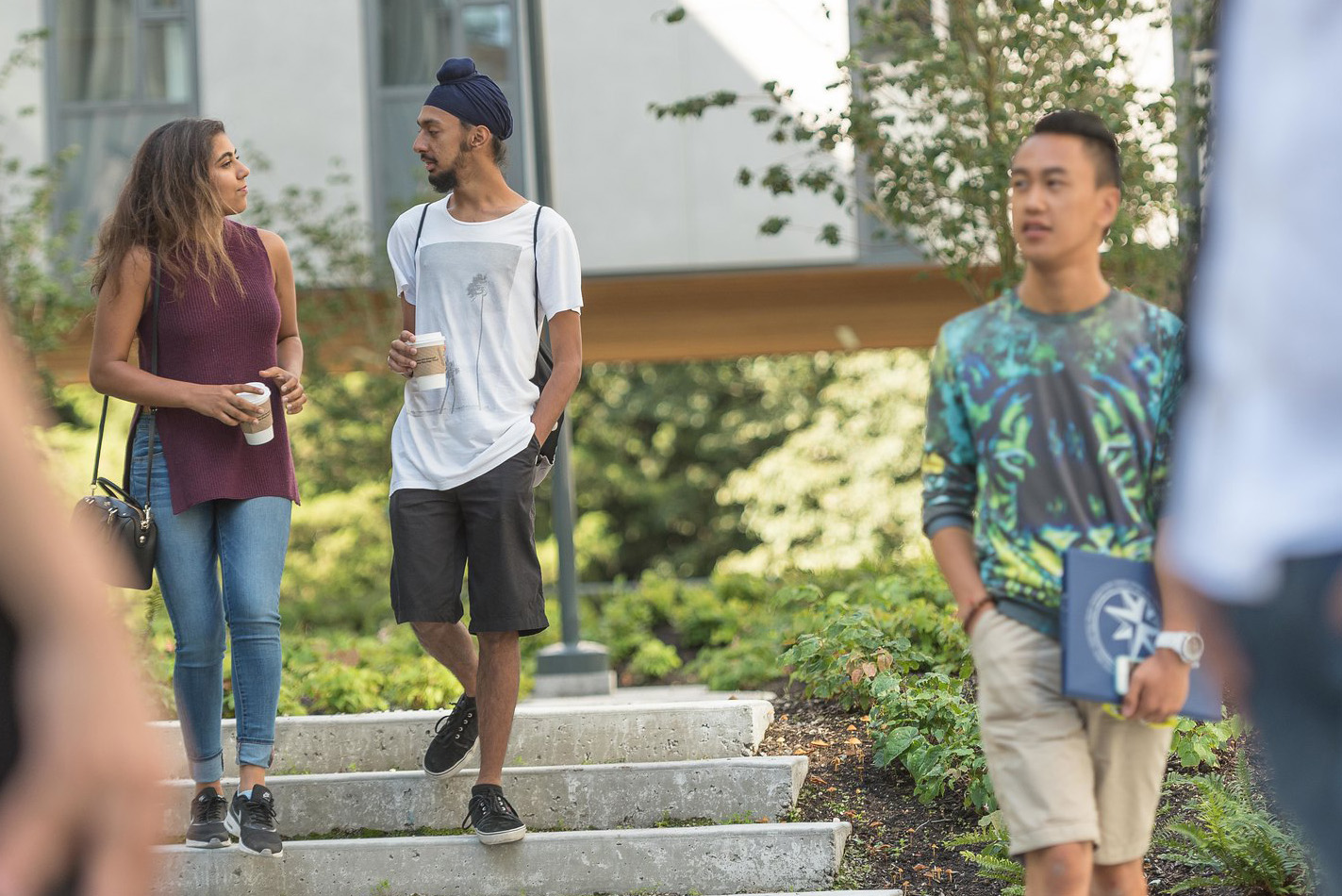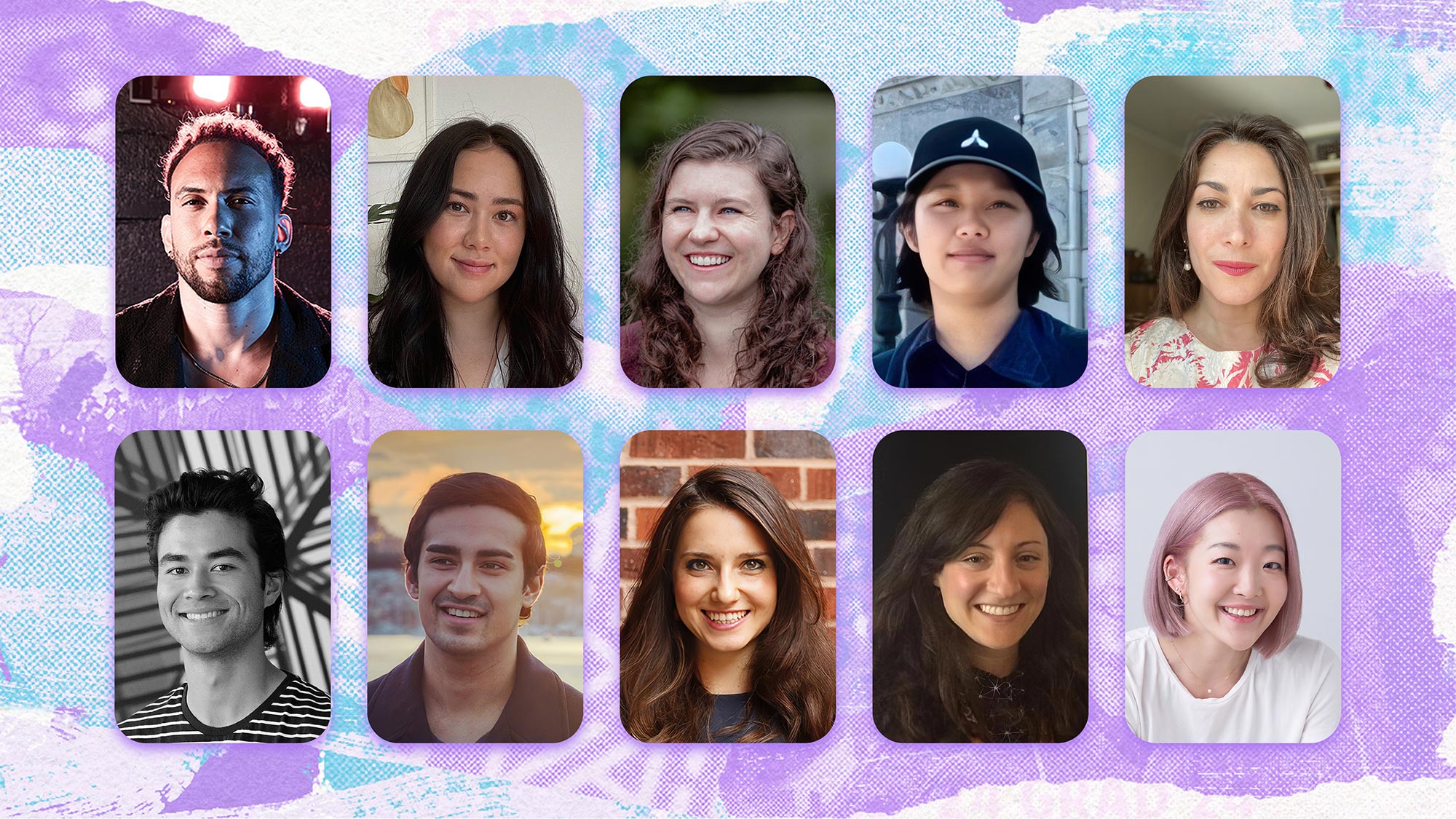

If you’re joining UBC Arts as a transfer student from another post-secondary institution, you might feel a mix of excitement and uncertainty, especially when it comes to finding community, support, and your footing on the Vancouver campus.
To help you succeed not just in your first term, but throughout your degree, former transfer students have shared the advice and insights that helped them find their footing and make the most of their time at UBC Arts.
1. Learn how to plan your degree
“To plan a Bachelor of Arts degree efficiently and intentionally, it’s important to review your transfer credits, degree requirements, program planning resources and course selection before you begin registration.”
– Pattie Shang, Academic Advisor
2. Get ready for course registration
Tips for second-year transfer students
“If you are transferring from UBCO to UBCV, be aware that UBCV has different degree requirements than UBCO. Consult with the academic calendar to find information about degree and program details as well as registration dates. If you need help with degree planning, Arts Academic Advising is always a great place to go.”
– Sumayya Ahmed BA ’23, former Arts Peer Advisor
“There is a chance that not every course you took before you transferred will count towards your new program at UBC, so be sure to use the BC Transfer Guide, which shows how courses from other institutions transfer to UBC.”
– Megan Ong BA ’22, former Arts Peer Advisor
Tips for third-year transfer students
“I transferred into third year and needed to select my major before course registration. I reached out to Arts Advising and the Vancouver School of Economics in May to ask about my eligibility for the Economics major while also considering Geography as another possibility. I found out that I was missing prerequisites to apply for the Economics major, so I declared a Geography major instead and planned my courses according to the major requirements.
If you are transferring to UBC as a third-year student, I encourage you to connect with Arts Advising through a workshop or drop-in advising session and reach out to your program/departmental advisor early to get support on understanding program eligibility and degree planning.”
– Pattie Shang, Academic Advisor
3. Get settled: Housing and navigating campus
“I transferred from Hamilton, Ontario, and was looking forward to exploring the larger city of Vancouver. I wanted to live on campus for at least one Winter Session to immerse myself in the new environment, so, I applied for on-campus housing immediately after accepting my offer. My life in residence started in a four-bedroom apartment in the Marine Drive residence. The ocean view was spectacular on the 10th floor!”
– Pattie Shang, Academic Advisor
“Moving anywhere can be difficult, but doing it from abroad is even more hectic. I was coordinating my move from UBC Okanagan to UBC Vancouver while living in Uganda! I received my acceptance late in the summer, and by then campus housing was already full. I spent countless hours looking for affordable housing and eventually found a place in Wesbrook Village, right next to campus. It was convenient: I could stay late to study without worrying about bus schedules and I could make spontaneous plans with others who lived nearby.”
– Sumayya Ahmed BA ’23, former Arts Peer Advisor
“The most challenging shift for me wasn’t moving from Malaysia to Canada; it was my second move from UBCO to UBCV. I had to uproot the life I had built at UBC Okanagan, leave behind friendships and connections, and start over in a new city where I knew no one. It was, without a doubt, a daunting experience.
By the time I accepted my offer, the application deadline for campus housing had passed. I searched for affordable off-campus housing, looked at commute times, and tried to find an area where I could easily shop for essentials. I was lucky to secure a nice spot on Main Street in a beautiful neighborhood. My advice from this process is to pay attention to important housing deadlines and have a backup plan just in case.
The Vancouver campus is large and can take some getting used to. Consider doing a self-guided tour, or spending a few hours exploring campus before classes start so you feel more confident finding your way around. If you have a condition that impacts your mobility, check out the UBC Accessibility Shuttle to help you navigate campus more comfortably.”
– Megan Ong BA ’22, former Arts Peer Advisor
4. Talk to your professors and TAs
“As a rather shy person, I am not the brave soul who raises their hand and speaks up often in class, but I do take advantage of professors’ office hours and TA sessions to ask questions and clarify course expectations. As long as you come prepared with thoughtful questions and a good attitude toward learning, you will have a great experience talking with your instructors!”
– Pattie Shang, Academic Advisor
“The academic experience at UBCV is quite different from anything that I had experienced at UBCO. Some classes are very large and quite competitive, so I recommend going to your professors’ office hours to have one-on-one conversations and get support.”
– Sumayya Ahmed BA ’23, former Arts Peer Advisor
“While I may not raise my hand much to speak in class, I often talk to my professors and TAs by dropping in during their office hours, after class, or by sending simple emails. I know it can be intimidating, but I really encourage you to reach out! They’re some of the nicest people you will ever meet!”
– Megan Ong BA ’22, former Arts Peer Advisor
5. Find community and connections
“Since most students had already found their friend groups in their first years, it wasn’t easy for me to fit in and make new friends as a transfer student. I felt unfamiliar with the campus and often wanted to return to the comforts of home. But it is important to step out of your comfort zone. Even small actions, like talking to the person sitting beside you in class or joining a club, can make a difference. I volunteered as an Imagine Day Orientation Leader and Arts Senior Orientation Leader, and also got a Work Learn position with Arts Academic Advising. I’m grateful for these opportunities, as I’ve met so many amazing people and was able to build meaningful connections with them.”
– Megan Ong BA ’22, former Arts Peer Advisor
“I recommend joining clubs that match your interests. For me, debate club helped me build friendships and improve my communication skills. There is a place for everyone at UBC, all you have to do is find it, whether through clubs, academia, jobs or new friendships.”
– Sumayya Ahmed BA ’23, former Arts Peer Advisor
“Take advantage of the amazing opportunities UBC has to enrich your undergrad experience, such as Go Global and Co-op. I did an internship, a Work Learn job, a directed study in my fourth year, and a research project for the Multidisciplinary Undergraduate Research Conference. Getting involved with these co-curricular opportunities truly shaped my university experience and helped me to explore academic and career paths.”
– Pattie Shang, Academic Advisor
Need more support as a transfer student? If you have questions about your transfer credits, degree planning or anything else related to your transition to UBC, Arts Academic Advising is here to help. You can meet with an Advisor to get guidance and support throughout your time at UBC Arts.


Sumayya Ahmed BA ’23, former Arts Peer Advisor


Megan Ong BA ’22, former Arts Peer Advisor


Pattie Shang, Academic Advisor


